Tbilisi Open Air 2025: Where music meets spirit of Georgian protest
Tbilisi Open Air 2025
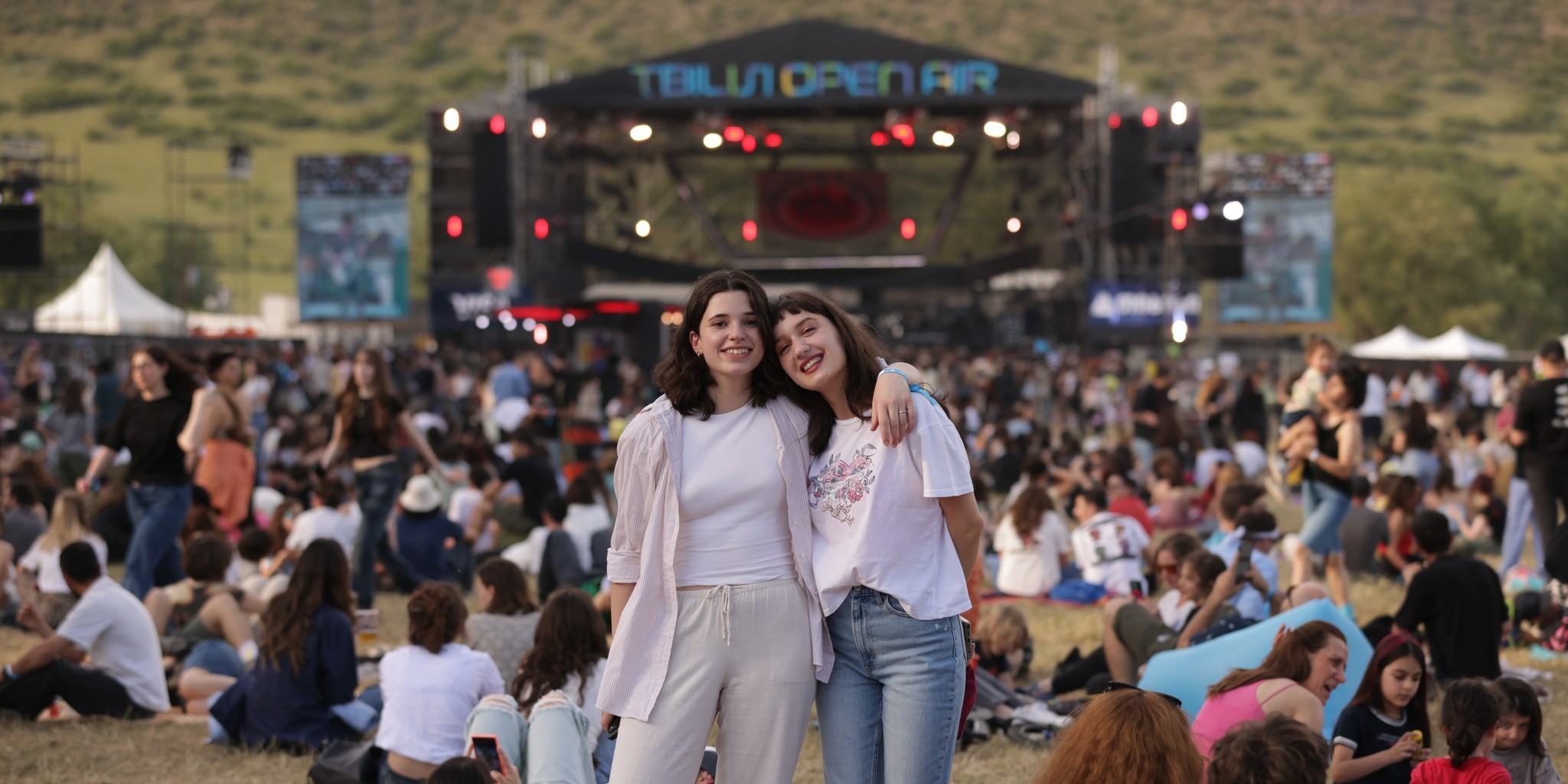
An anti-occupation performance featuring the Russian flag, protest chants, and messages of solidarity from the stage — the largest music festival in the Caucasus, Tbilisi Open Air 2025, held in Georgia every summer for the past 16 years, took on a special form this year.
In 2025, the festival responded to the country’s political developments and was timed to coincide with Georgia’s Independence Day.
Georgia first declared independence 107 years ago, on 26 May 1918. The First Georgian Democratic Republic lasted only three years — on 25 February 1921, Tbilisi was occupied by the 11th Red Army. This marked the end of Georgia’s brief independence and the beginning of 70 years under Soviet rule. Georgia regained its independence 34 years ago, following a referendum held on 9 April 1991. Despite this, 26 May was declared the country’s official Independence Day.
The two-day festival concluded on the night of 26 May with a performance by the Georgian national ensemble Sukhishvili and the singing of the Georgian national anthem.
The Georgian national anthem was performed by the Sukhishvili ensemble and singer Nika Kocharov.
Video: Mtavari Arkhi
Performance by the Sukhishvili ensemble. Video: Tbilisi Open Air
The festival was organised by the Georgian Theatre, the National Ballet, Georgian winemakers, the Georgian Publishers and Booksellers Association, among others — all of whom have faced various forms of repression from the Georgian authorities in recent years.
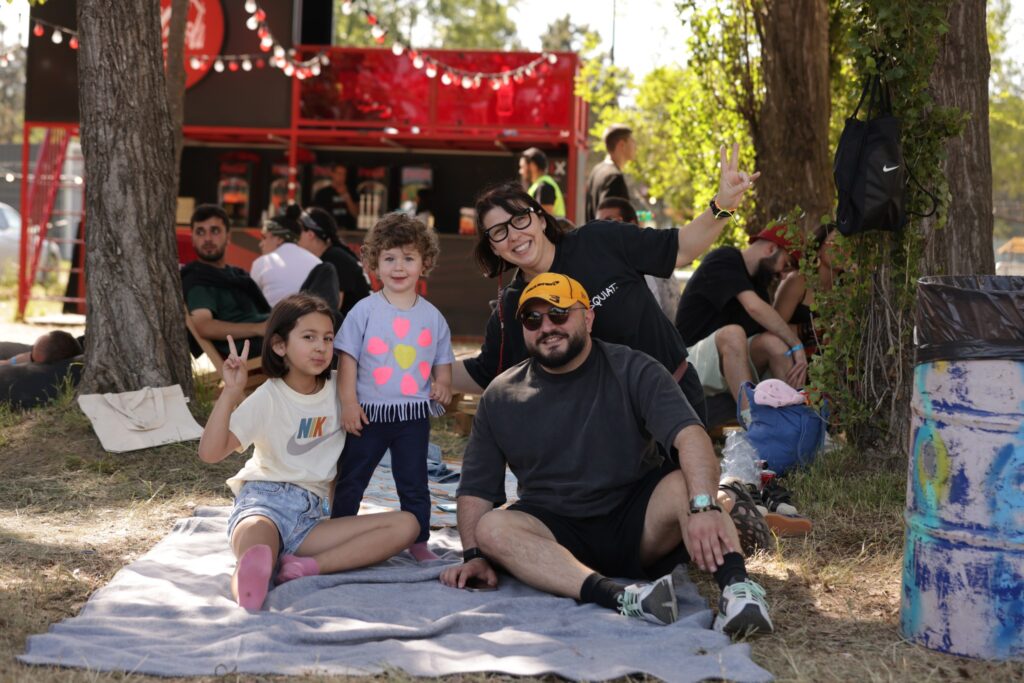
This year, only Georgian performers took to the main stage.
Alongside the festival’s traditional headliners from previous years, legendary singers Nani Bregvadze and Gulli Chokheli also performed.
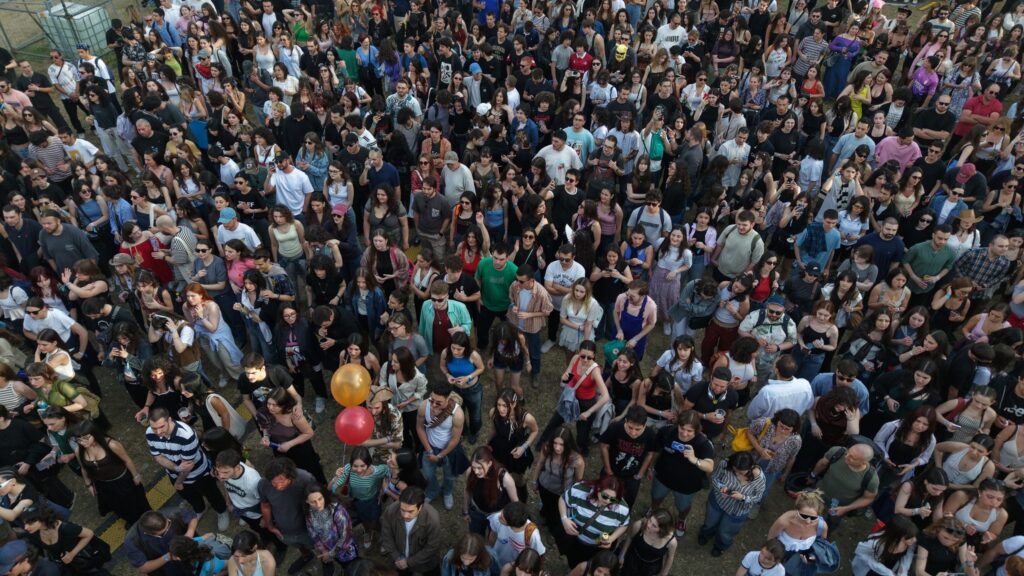
Anti-occupation performance involving the Russian flag
The festival unfolded in an atmosphere of protest — including against the Russian occupation.
Georgian singer Erekle Getsadze staged a performance on the Tbilisi Open Air main stage involving the Russian flag — first throwing it to the ground, then pretending to urinate on it.
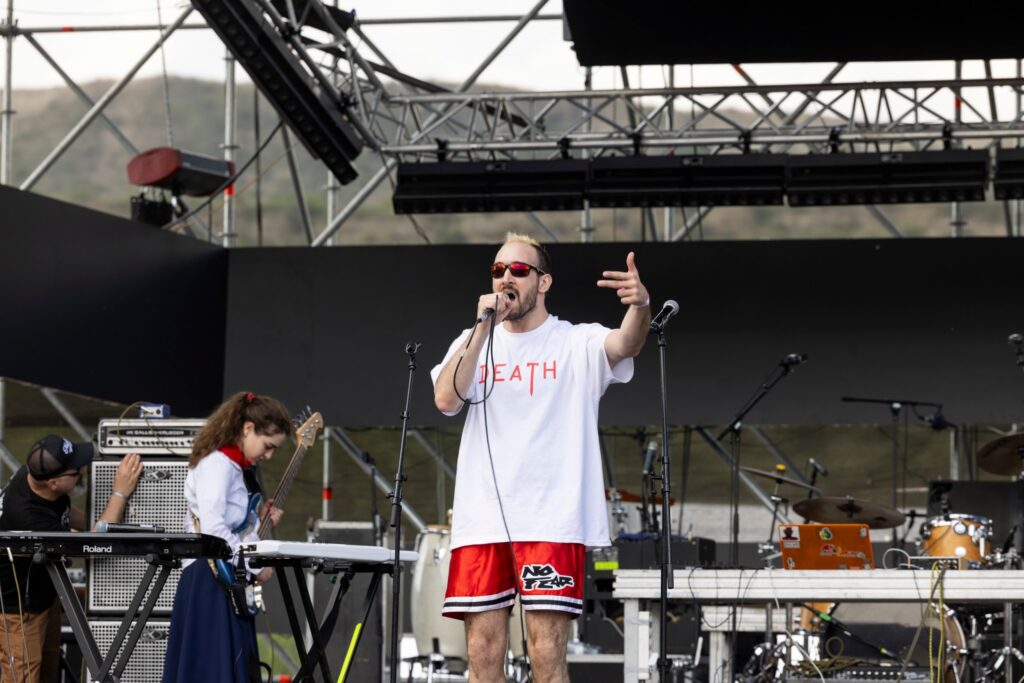
The performance drew attention from Russian media outlets and Telegram channels, which described it as a “desecration of the Russian tricolour.” Russia’s Foreign Ministry spokesperson Maria Zakharova wrote on her Telegram channel: “Russian law enforcement will give this disgraceful act the appropriate assessment.”
“When God didn’t give a man brains, he has to work with other organs — in this case, the one that apparently ends up in his hand most often,” Zakharova added. She also stressed that “a flag remains a flag, no matter what some lunatic does with it,” and reminded readers of the “honourable Georgians” who fought under the Russian flag: “It was a Georgian, Meliton Kantaria, together with Sergeant Mikhail Yegorov, who raised the flag of our shared country — whose successor is Russia — over the defeated Reichstag.”
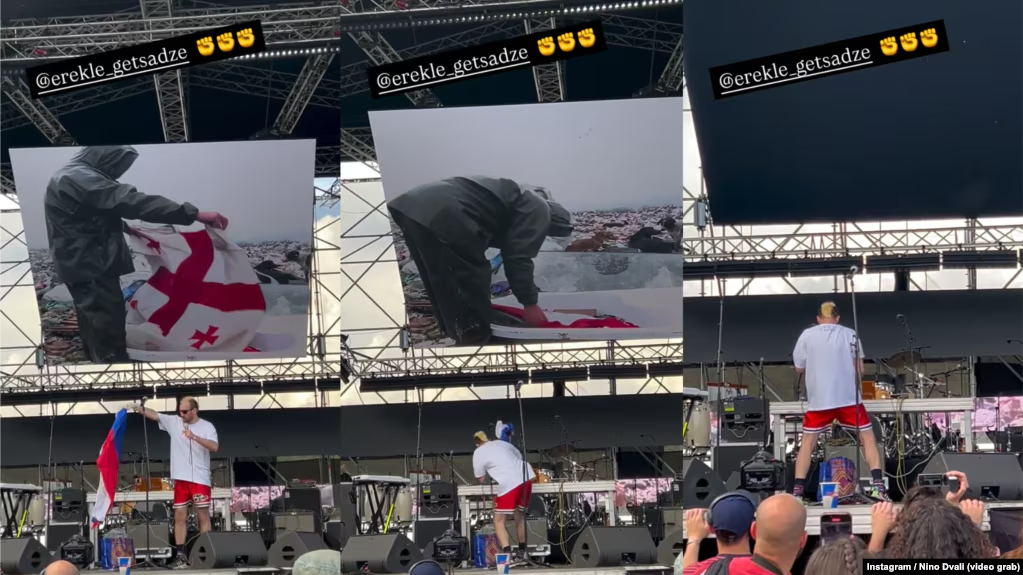
The Russian Investigative Committee has already opened a criminal case over the “desecration of the state flag of the Russian Federation.” According to the Committee’s press service, the decision to launch the investigation was made by the head of the agency, Alexander Bastrykin.
“Freedom for the regime’s prisoners”, “Oligarchy to the flames” — protest slogans from the main stage
Slogans such as “Freedom for the regime’s prisoners” and “Oligarchy to the flames” were heard from the festival’s main stage.
Protests have been ongoing in Tbilisi for 180 days. Mass demonstrations in the capital and other cities began on 28 November 2024, after Prime Minister Irakli Kobakhidze announced the suspension of Georgia’s EU integration process.
In the early days of the protests, police violently assaulted demonstrators. Over 500 people were detained, most of them severely beaten. More than 50 people, unlawfully arrested by the Georgian Dream government at pro-European rallies, remain behind bars. Among them is journalist Mzia Amaglobeli, who has been in detention for five months.
Hundreds of thousands of people, joined by opera singer Paata Burchuladze, sang the song “I Am Georgia”, which has become a symbol of the protest.
Another emotional song, “Homeland”, which has also become a voice of the protest, was performed by festivalgoers together with singer Merab Sepashvili and the band Ara.
Legendary Georgian jazz singer, 90-year-old Gulli Chokheli, also took to the festival’s main stage.
“We will win. Who could possibly defeat these young people? Fear us!
Happy Independence Day. I can’t kiss you all at once, but I love you so much and trust you completely!
I don’t have much time left — I’m already 90 — but I’m waiting for victory,” she told the thousands in attendance.
Gulli Chokheli performing on stage. Video: Formula TV
The duet between Georgian singer Nani Bregvadze and performer Kordz was equally emotional. The musicians breathed new life into the legendary 1973 song “Mtvareo.” Nani Bregvadze first performed this song by Gogi Tsabadze in the film Melodies of the Vera Quarter. It instantly became a classic of Georgian music — and 52 years later, it was heard on stage in an entirely new format
The annual music festival, which drew hundreds of thousands of people, came to a close late on 25 May, bidding farewell to its audience until next summer.



















